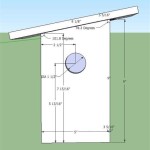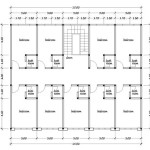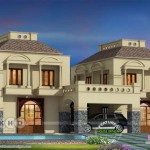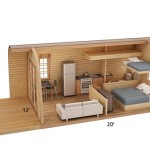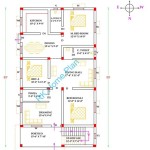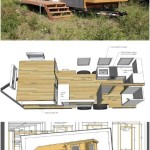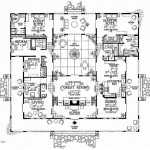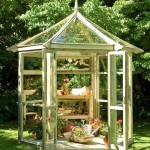Front to Back Split Level House Plans: Unraveling the Essential Aspects
Front to back split-level house plans offer a unique and functional layout that has gained popularity for its practicality and space efficiency. These homes feature multiple levels connected by half-flights of stairs, creating a versatile and adaptable living space. To delve into the intricacies of these plans, let's explore their defining characteristics:
1. Multi-Level Design with Split-Level Entrances
The hallmark of front to back split-level homes is their multi-level design. These homes typically consist of three levels: a lower level, a main level, and an upper level. The main entrance is located on the main level, with half-flights of stairs leading up to the upper level and down to the lower level. This split-level configuration allows for distinct living areas while maintaining a cohesive flow.
2. Enhanced Privacy and Separation
The split-level design provides a natural separation between different areas of the home. The lower level often houses more private spaces such as bedrooms and bathrooms, creating a sanctuary of tranquility. Conversely, the upper level typically accommodates common areas like the living room, dining room, and kitchen, fostering a sense of openness and togetherness.
3. Space Efficiency and Vertical Flow
Front to back split-level homes maximize space utilization by utilizing the vertical dimension. The half-flights of stairs connect the different levels seamlessly, allowing for efficient movement throughout the home. This vertical flow also creates a sense of spatial interest, adding character and visual appeal.
4. Adaptable Floor Plan Options
The versatile nature of front to back split-level homes allows for a range of floor plan options. The lower level can be designed with additional bedrooms, a family room, or a home office, depending on individual needs. The main level and upper level can be customized to create distinct zones for entertainment, dining, and relaxation.
5. Abundant Natural Light
Split-level homes often feature large windows on multiple levels, allowing for ample natural light to flood the interior. The staggered design creates various angles and elevations, ensuring that different areas of the home receive adequate sunlight throughout the day.
6. Outdoor Living Spaces
Many front to back split-level homes incorporate outdoor living spaces into their design. The lower level often has a walk-out basement that leads to a patio or deck, providing a seamless transition between indoor and outdoor living.
7. Energy Efficiency Considerations
The multi-level design of front to back split-level homes can present opportunities for energy-efficient construction. The lower level, being partly subterranean, benefits from natural insulation, reducing heat loss in the winter and heat gain in the summer.
Conclusion
Front to back split-level house plans offer a unique and practical solution for those seeking a spacious, adaptable, and energy-conscious home. Their multi-level design, enhanced privacy, and flexible floor plan options make them an ideal choice for families of all sizes. If you're considering building a split-level home, carefully consider the specific requirements of your family and lifestyle to ensure the perfect fit.

Plan 1246 Front To Back Split Level Home House Plans

Woodcrest Elevate Design Build

The Unique Shapes Of Minto S Back Split Designs In 60s And 70s

Modern Split Level House Plans And Multi Floor Plan Designs

The Unique Shapes Of Minto S Back Split Designs In 60s And 70s

Modern Split Level House Plans And Floor With Garage

Modern Split Level House Plans And Multi Floor Plan Designs

Back Split House Plans Circa 1978 Floor

Woodcrest Elevate Design Build

The Unique Shapes Of Minto S Back Split Designs In 60s And 70s

